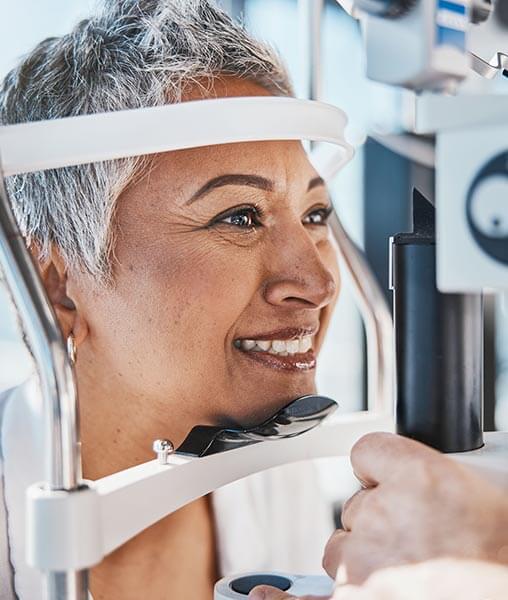Posted by: Albany Cornea | Center For Eye Care Excellence in Uncategorized

Your vision is precious, but as you grow older, your chance of developing the vision-threatening condition called Age-Related Macular Degeneration (AMD) increases. This February is AMD Awareness Month, and we’re revealing the best ways to prevent this condition from developing or progressing, so you can maintain healthy vision for life.
What is AMD?
According to the National Institute of Health, AMD is a common eye condition and is the leading cause of vision loss in Americans over 50 years old. There are two forms of AMD: dry and wet. Both cause damage to the macula, which eventually leads to varying degrees of central vision loss.
Dry AMD accounts for 80-95% of all cases of AMD, though up to 10-20% of these cases may develop into wet AMD later on. Dry AMD occurs when the macula thins with age and a yellowish proteinscalled drusen forms on the retina—painlessly causing a patient’s central vision to deteriorate. Wet AMD is associated with more severe or rapid vision loss. It occurs when abnormal blood vessels form under the retina and cause damage as they leak fluid or bleed.
Preventative measures, early detection and treatment, and regular visits to an ophthalmologist can delay the development or progression of AMD. And while there is no cure to reverse vision loss sustained by dry AMD, anti-VEGF drugs are promising treatments for reversing early vision loss caused by wet AMD.
Although there are uncontrollable risk factors of AMD, like being Caucasian, being over 50 years old, or having a family history, there are several risk factors that patients can control. The American Academy of Ophthalmology recommends making the following lifestyle changes to decrease your risk of developing AMD:
Quit smoking Stay in a healthy weight rangeConsume less saturated fatsKeep blood pressure healthyRegularly visit your ophthalmologistBecause AMD often has few symptoms in early stages and usually progresses gradually, it is important to have regular examinations with a trusted ophthalmologist. Your ophthalmologist will be able to detect the condition, recommend appropriate treatments or lifestyle changes, and monitor progression. By managing risk factors and following your ophthalmologist’s advice, you can improve your chances of maintaining lifelong vision.
If you are interested in taking the first step to healthier eyes, call us today to schedule an appointment.
Our team at Center For Eye Care Excellence of Ablandy is excited to help you protect your vision for life!

